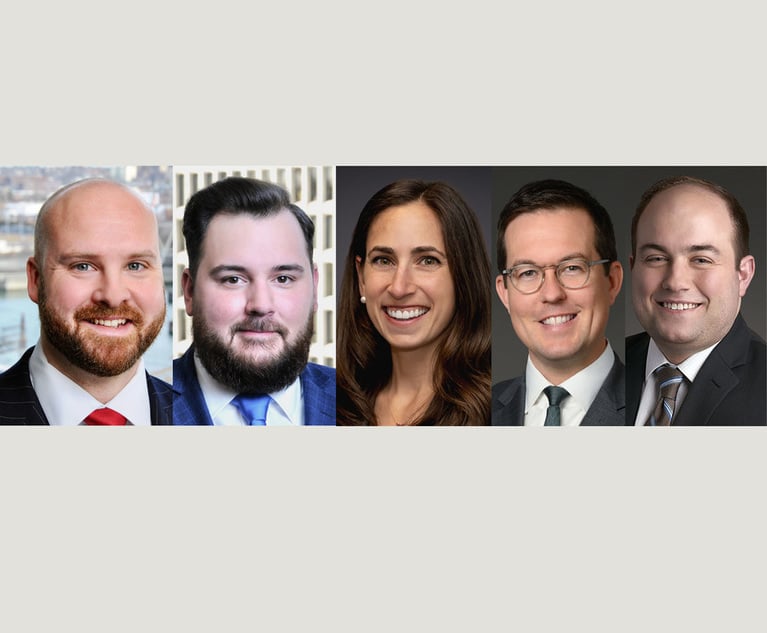
Before policymakers consider how to solve the student debt problem, they should know today's typical indebted college student is not the student of the past. Not only are students deeper in debt, but they are likely older, with children, and working full- or part-time as they study for a degree.
According to the National Center for Education Statistics, almost 40 percent of students enrolled for the 2019-2020 academic year are 25 or older, and 57 percent are women.
There is currently over $1.5 trillion in student debt outstanding held by 44 million borrowers, averaging more than $30,000 per student.
The impact of the growing amount of student debt — now the second largest category of consumer debt after mortgages — "has created an entire generation of a permanent debtor class which impacts the rest of their lives and the broader U.S. economy, including companies — companies and culture," according to Dan Rosensweig, president and CEO of Chegg, a publicly traded company that provides an online educational platform.
Student loan borrowers are forced into jobs they don't want; missing payments on other debt, including auto loans and credit card debt; delaying marriage, children and home buying and, in many cases, suffering from depression and anxiety, says Rosensweig, who spoke at a recent webinar sponsored by the Aspen Institute: Unpacking $1.5 Trillion: The Real Impact of Student Loan Debt and How We Turn the Page.
"If the burden were reduced, think about the money that could go into the pockets for housing and retirement. It would be the biggest economic boon this country has ever seen."
Help From Employers
With that in mind, Chegg has joined a growing number of companies that are helping employees pay off their student debt. Its Equity for Education program provides entry-level through manager-level employees with at least two years tenure at the company a $5,000 annual grant of company stock to help the employee pay off their student debt (employees at the director or vice president level are eligible for up to $3,000 annually).
Rosensweig is lobbying for legislative change so that the grants are not taxable for the employee and tax deductible for companies.
Legislation has been introduced in the House, along with a companion bill in the Senate that would make that change. The Employer Participation in Repayment Act of 2019 would allow employers give tax-free student loan assistance up to $5,250 a year per employee, the same amount the tax code now treats as tax-exempt for employer-provided tuition assistance.
Abbott was able to obtain a private letter ruling from the IRS so that it could offer a program allowing the company to contribute 5 percent of an employee's salary to their 401(k) plan if the employee contributed at least 2 percent gross salary to their student loan payments. The employee is not required to contribute to their 401(k) to qualify for the Abbott contribution.
The program Freedom 2 Save program has signed up more than 1,000 employees so far, helping Abbott attract and retain talent, says Marlon Sullivan, a divisional vice president of human resources at the company, who also participated in the Aspen Institute webinar.
Reducing the Need for Student Loans
Another approach to addressing the explosion of student loan debt is to help limit the need for so much borrowing in the first place. To that end, companies like Walmart and Disney are offering debt-free college education to full and part-time employees who study online at nonprofit online universities through Guild Education.
"This could be the next major employer benefit," says Gary Brahm, chancellor and CEO of Brandman University, which works with Guild on such programs, and also participated in the Aspen Institute webinar. It could lead to a new trend among graduating high schoolers: choosing to take a job at one of the employers who offers this benefit so they can get a college education debt-free. "This is still in the process of developing but could be a very big deal," according to Brahm.
Employers could also choose to eliminate the bachelor's of arts requirement for jobs that realistically can be done without one, requiring instead completion of a competency-based certificate program, which wouldn't cost as much time or money as a B.A., or another way a to demonstrate competency.
A number of employers in the technology area have already eliminated the bachelor's of arts requirement, according to Ajita Talwalker Menon, former special assistant for higher education policy in the Obama administration, who participated in the Aspen Institute webinar. That allows employees to borrow less and provides employers with a more diversified talent pool. The employers found that "a B.A. wasn't a good indication that a person could perform the job," says Menon.
— Related on ThinkAdvisor:
This content has been archived. It is available through our partners, LexisNexis® and Bloomberg Law.
To view this content, please continue to their sites.
Not a Lexis Subscriber?
Subscribe Now
Not a Bloomberg Law Subscriber?
Subscribe Now
NOT FOR REPRINT
© 2025 ALM Global, LLC, All Rights Reserved. Request academic re-use from www.copyright.com. All other uses, submit a request to [email protected]. For more information visit Asset & Logo Licensing.
You Might Like
View All

Apple Disputes 'Efforts to Manufacture' Imaging Sensor Claims Against iPhone 15 Technology

New Partners at Cummings & Lockwood, Carmody Torrance Sandak & Hennessey
2 minute read
Trending Stories
Who Got The Work
Michael G. Bongiorno, Andrew Scott Dulberg and Elizabeth E. Driscoll from Wilmer Cutler Pickering Hale and Dorr have stepped in to represent Symbotic Inc., an A.I.-enabled technology platform that focuses on increasing supply chain efficiency, and other defendants in a pending shareholder derivative lawsuit. The case, filed Oct. 2 in Massachusetts District Court by the Brown Law Firm on behalf of Stephen Austen, accuses certain officers and directors of misleading investors in regard to Symbotic's potential for margin growth by failing to disclose that the company was not equipped to timely deploy its systems or manage expenses through project delays. The case, assigned to U.S. District Judge Nathaniel M. Gorton, is 1:24-cv-12522, Austen v. Cohen et al.
Who Got The Work
Edmund Polubinski and Marie Killmond of Davis Polk & Wardwell have entered appearances for data platform software development company MongoDB and other defendants in a pending shareholder derivative lawsuit. The action, filed Oct. 7 in New York Southern District Court by the Brown Law Firm, accuses the company's directors and/or officers of falsely expressing confidence in the company’s restructuring of its sales incentive plan and downplaying the severity of decreases in its upfront commitments. The case is 1:24-cv-07594, Roy v. Ittycheria et al.
Who Got The Work
Amy O. Bruchs and Kurt F. Ellison of Michael Best & Friedrich have entered appearances for Epic Systems Corp. in a pending employment discrimination lawsuit. The suit was filed Sept. 7 in Wisconsin Western District Court by Levine Eisberner LLC and Siri & Glimstad on behalf of a project manager who claims that he was wrongfully terminated after applying for a religious exemption to the defendant's COVID-19 vaccine mandate. The case, assigned to U.S. Magistrate Judge Anita Marie Boor, is 3:24-cv-00630, Secker, Nathan v. Epic Systems Corporation.
Who Got The Work
David X. Sullivan, Thomas J. Finn and Gregory A. Hall from McCarter & English have entered appearances for Sunrun Installation Services in a pending civil rights lawsuit. The complaint was filed Sept. 4 in Connecticut District Court by attorney Robert M. Berke on behalf of former employee George Edward Steins, who was arrested and charged with employing an unregistered home improvement salesperson. The complaint alleges that had Sunrun informed the Connecticut Department of Consumer Protection that the plaintiff's employment had ended in 2017 and that he no longer held Sunrun's home improvement contractor license, he would not have been hit with charges, which were dismissed in May 2024. The case, assigned to U.S. District Judge Jeffrey A. Meyer, is 3:24-cv-01423, Steins v. Sunrun, Inc. et al.
Who Got The Work
Greenberg Traurig shareholder Joshua L. Raskin has entered an appearance for boohoo.com UK Ltd. in a pending patent infringement lawsuit. The suit, filed Sept. 3 in Texas Eastern District Court by Rozier Hardt McDonough on behalf of Alto Dynamics, asserts five patents related to an online shopping platform. The case, assigned to U.S. District Judge Rodney Gilstrap, is 2:24-cv-00719, Alto Dynamics, LLC v. boohoo.com UK Limited.
Featured Firms
Law Offices of Gary Martin Hays & Associates, P.C.
(470) 294-1674
Law Offices of Mark E. Salomone
(857) 444-6468
Smith & Hassler
(713) 739-1250










